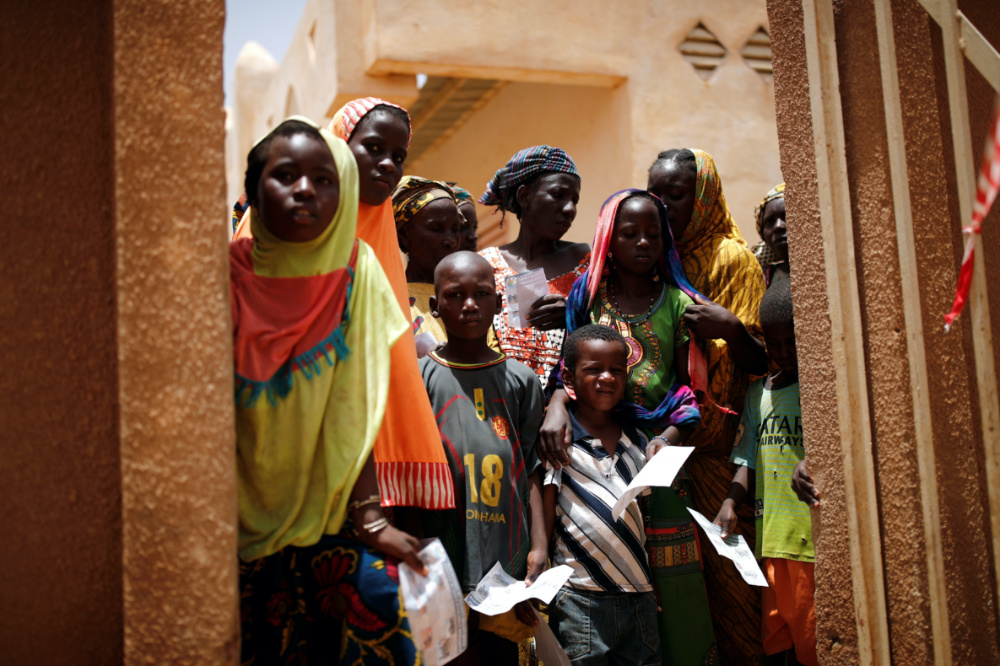Dakar, Senegal
Thomson Reuters Foundation
More children have been trafficked, forced to work in gold mines and to fight as soldiers in Mali this year as conflict worsened and COVID-19 shut schools, the United Nations said on Tuesday.
With security in Mali deteriorating, a network of humanitarian agencies led by the UN Refugee Agency, UNHCR, documented 230 cases of child recruitment by armed groups in the first half of 2020, compared to 215 cases in all of 2019.

Local women and children arrive at an abandoned clinic to receive medical care from the French military in Ndaki, Mali, on 29th July, 2019. PICTURE: Reuters/Benoit Tessie/File photo.
The agencies also found about 6,000 children, mostly boys, working in eight gold mining sites, after 24 children bound for the mines were rescued in June in the West African nation, one of the continent’s largest gold producers.
“As a result of conflict and socio-economic deterioration worsened by the pandemic, we are seeing some of the most egregious human rights violations in the Sahel,” said UNHCR’s Assistant High Commissioner for Protection, Gillian Triggs.
“Children are being forced to fight by armed groups, trafficked, raped, sold, forced into sexual or domestic servitude, or married off,” she said in a statement, which said the victims were Malian, as well as refugees and migrants.
Millions of children were out of school for about six months due to the coronavirus pandemic in Mali, where security is worsening as militants linked to al-Qaeda and Islamic State have gained ground, making swathes of the country ungovernable.
In August, frustration over insecurity, corruption and economic hardship led to Mali’s second coup in eight years.
“COVID-19 has come to make an already challenging situation even more difficult for children,” said Amavi Akpamagbo, Mali country director for Save the Children, adding that similar trends could be seen across the Central Sahel region.
“If this is not taken as a priority by donors and stakeholders…the education and protection of an entire generation of children will be at risk, with long-term consequences,” he told the Thomson Reuters Foundation.
Mali is a source, transit, and destination country for transnational trafficking, but most trafficking happens within its borders, according to the US State Department.
Armed groups forcibly recruit children and traffic them for labour in gold mines from which they profit, said UNHCR.
Child marriages could also spiral due to school closures, in a country where an estimated 53 per cent of girls are married before the age of 18, it said.
Mali reopened most schools in September but aid groups have warned that many children still cannot access them due to conflict or may not go back because of poverty.






